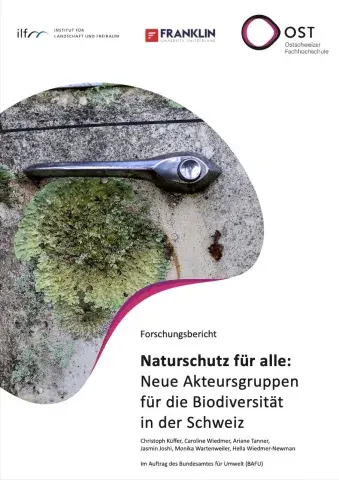
The co-directors of the FUS Center for Environmental Justice and Sustainable Futures (CJSF) – Professors Caroline Wiedmer and Christoph Kueffer – have conducted a study for the Swiss Federal Office for the Environment (Bundesamt für Umwelt, BAFU), which has resulted in a new publication entitled Nature Conservation for Everyone: New Actors for Biodiversity in Switzerland. In thirteen theoretical and practical modules, the authors outline how nature conservation can be better mainstreamed across society and the economy as part of a transformation towards greater sustainability in Switzerland. This work is important in effecting widespread positive change by merging principles of conservationism with the social sciences and humanities. The study proposes that we think more democratically about nature conservation by employing participatory processes, strengthening transdisciplinary cooperation, and developing common narratives that convey positive and actionable visions of a future biodiverse Switzerland.
For the English summary and recommendations of the study please see pages 12 to 14 of the publication.
The study also encourages us to expand our view of the possible actors involved in conservation. The authors argue that although conservationism has historically been marginalized politically, it will become more prominent in the future as our climate and natural resources become increasingly degraded. The importance of integrating stories and visualizations through literature, art, film, myths, fairytales, memories, images, metaphors, and personal encounters is also highlighted in the publication, as these humanities-based vehicles are not typically associated with conservation efforts but could be a great resource to empower diverse actors. Narrative and artistic forms of communication can enable transformational processes and social innovations and help anchor nature conservation in social and cultural contexts.
After a theoretical introduction the publication discusses the various workshops and case studies conducted with different groups of participants during the study, many of whom were asked questions about their relationships with nature and biodiversity. These sessions with individual participants were recorded as digital stories in video format which can now be used to transmit knowledge on the subject. The study’s conclusions suggest that younger generations are not well represented in the current administration, politics, or expert groups involved in conservation even though they harbor great potential for establishing the topic of nature conservation more broadly in society. Health experts, young companies and start-ups as well can make nature-based innovations possible if biodiversity becomes a central pillar of a green economy.
In keeping with the priorities of the FUS Center for Environmental Justice and Sustainable Futures (CJSF), the Green Office (GO) and the values of Franklin as a liberal arts university, this interdisciplinary project, in collaboration with the technology-oriented Eastern Switzerland University of Applied Sciences in Rapperswil, provides a step-by-step guide and theoretical map for moving forward with the integration of natural and social sciences and the humanities. To effectively tackle the challenge of today’s decreasing biodiversity in Switzerland, and elsewhere, the transdisciplinary collaboration of all disciplines is required.

